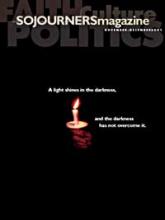In the sweltering heat of late summer, Thomas Novotny resigned as chief U.S. negotiator on an international treaty to reduce tobacco use. The real heat was on Bush administration officials, who were quick to deny that Novotny had political differences with the president.
As deputy assistant secretary at the Department of Health and Human Services, Novotny led the U.S. delegation to the World Health Organization's Framework Convention on Tobacco Control. Officials at HHS stated that Novotny, 54, simply wanted to retire. But numerous sources close to Novotny, who served in this capacity in both the Clinton and Bush presidencies, said that he was frustrated with administration moves to back off high standards on the advertising and marketing of cigarettes and restrictions on secondhand smoke.
Rep. Henry Waxman (D-Calif.), a congressional leader in struggles to hold the industry accountable, called the Bush administration positions a "breath-taking reversal in U.S. policy-going from global leader on tobacco control to pulling back and advocating the tobacco industry's positions."
Only a month earlier, Attorney General John Ashcroft announced that the federal case was weak (much to the surprise of the many state attorneys general who had tried or settled cases against the tobacco industry) and that the government would likely need to settle out of court with the industry. Such a public pronouncement, of course, does not put prosecutors in a strong bargaining position.
Rev. Douglas Miles, pastor of Koinonia Baptist Church in Baltimore, believes "the attorney general's decision [to settle out of court] is unconscionable, given his profession as a Christian, since he has chosen an allegiance to profit over the good of the people."
Read the Full Article
